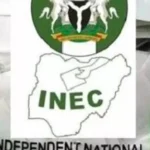…N4.5trn locked up in state coffers
Sixteen months after the Supreme Court declared the freezing of local government funds by state governments unconstitutional, the country's 774 local councils are largely at the mercy of governors, stripped of financial independence, weakened in function, and silenced in governance.
In July 2024, Nigerians celebrated what was hailed as a landmark decision: the Supreme Court's decision to grant financial autonomy to local governments, declaring that state governors had no constitutional right to dissolve democratically elected councils or disrupt their federal allocations.
This was seen as a turning point for grassroots governance, a chance to revive community-level development that had long suffered under state dominance. But sixteen months later, little has changed.
In many states, council offices still depend on handouts from governors' offices. Salary is getting delayed. Projects are stalled. The Council President complains quietly, otherwise risks removal. This decision appears to have become yet another symbolic victory without any substance.
Also read: FAAC allocation to FG, states, LGs drops to N2.1trn as gross revenue declines by 16%
N4.5 trillion locked in states
Detailed analysis of Federation Account Allocation Committee (FAAC) data shows that between July 2024 and June 2025, a total of N4.496 trillion was allocated to local government councils across Nigeria. This amount represents 24.87 per cent of the N18.074 trillion shared among the three levels of government during the same period.
Monthly disbursements were stable, N337.02 billion in July 2024, N343.70 billion in August, N306.53 billion in September and N329.86 billion in October. The figure peaked at N402.55 billion in December, followed by N361.75 billion in January 2025, N434.57 billion in February and N410.56 billion in March. Subsequent months recorded N387 billion in April, N406.63 billion in May and N419.97 billion in June.
Yet, these billions of dollars meant to promote grassroots development continue to pass through state governments instead of going directly to local councils as per the Supreme Court order.
Delays, disputes and bureaucratic hurdles have become the new normal, entangling the Central Bank of Nigeria (CBN), state treasuries and local authorities in a complex web of financial deregulation and constitutional ambiguity.
The governor is still holding the purse strings
In defiance of the Supreme Court decision, governors have maintained firm control over these allocations, often citing constitutional provisions establishing the State Joint Local Government Account (SJLGA). The continued use of this account effectively places Council funds in the custody of the State, contrary to the spirit of the Supreme Court's autonomy judgment.
Observers say President Bola Tinubu, who initially advocated financial autonomy, has softened his stance. What was once projected as a bold step to strengthen grassroots democracy is now mired in political compromise.
Some analysts suggest that Tinubu's reluctance to implement the decision is due to political caution. “President Tinubu has calmed down and is now afraid of governors who may have made subtle threats to wait for him in 2027,” an observer told BusinessDay.
Also read: Delegates pass bill to empower LGs as federal units for second reading
a constitutional contradiction
Legal experts argue that the apparent inaction by the federal government may, paradoxically, be an act of constitutional obedience.
Section 162 (5) and (6) of the 1999 Constitution (as amended) states that: “The sums standing to the credit of the Local Government Councils in the Federation Account shall be allocated to the State for the benefit of their Local Government Councils on such terms and in such manner as may be determined by the National Assembly.”
“Each State shall maintain a special account to be called the State Joint Local Government Account into which all allocations from the Federation Account and from the State Government to the Local Government Councils of the State shall be paid.”
Lawyers say this provision directly contradicts the Supreme Court's interpretation of local government financial independence.
Speaking recently on X (formerly Twitter), lawyer and reform advocate Joe Abah described the situation as a paradox.
“The Constitution confuses itself as to what it is supposed to do with local government,” Abah wrote. “The recent Supreme Court decision actually does violence to the part of the Constitution that establishes a United States Local Government Account. Oddly, by not enforcing the decision, the federal government is actually following the Constitution.”
In other words, Nigeria's Basic Law may be the biggest obstacle to genuine local government autonomy.
Parliament's attempt to solve the puzzle
Perhaps understanding this contradiction, last week the House of Representatives took steps towards resolving it. Lawmakers passed for the second reading “A Bill for an Act to alter the provisions of the Constitution of the Federal Republic of Nigeria, 1999 (as amended), to include Local Government Areas and Area Councils as constituent units of the Federation.”
Jointly sponsored by Speaker Abbas Tajudeen and Adewale Hameed (APC, Lagos), the bill seeks to constitutionally elevate local governments from administrative arms of states to fully autonomous tiers of governance with explicit recognition as part of the federal structure of Nigeria.
Speaking while introducing the bill during the plenary session, Hammad said, “This bill seeks to amend the Constitution to explicitly recognize the federal and state governments as well as the local government areas and area councils of the Federal Capital Territory as constituent units of the federation. In doing so, we aim to reaffirm and protect the autonomy of local governments and area councils.”
The speaker said that local governance is at the heart of true democracy. Tajuddin said, “The success of our democracy depends on how well governance and development reaches the people at the grassroots level.”
“Strengthening local government autonomy through constitutional recognition is not just an administrative reform; it is a democratic imperative.”
For millions of Nigerians, the consequences of these legal and political fights are tangible. Local governments remain the closest level of government to the people, responsible for basic services such as waste management, health centers and primary schools.











